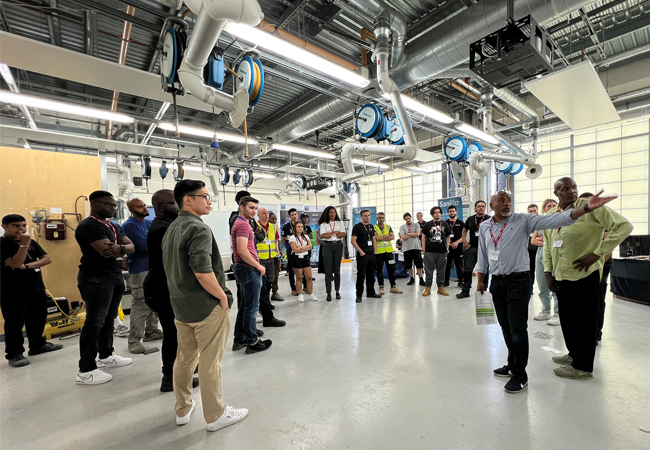
The Society of Public Health Engineers’ (SoPHE’s) Plumbing Centre of Excellence (PCE) aims to provide better education and support for public health engineers within CIBSE. Sanjay Modasia, operations manager at JA Brooks Mechanical Services, is a member of the SoPHE committee and coordinates its PCE Young Engineers plumbing competition. He gives an insight into the benefits of joining the PCE.
What is the SoPHE Plumbing Centre of Excellence?
It launched in 2018, and was developed by the SoPHE Contractors Group, supported by the SoPHE Steering Group and its Industrial Members. The goal is to provide plumbing trainees, apprentices and young engineers with clear career-progression opportunities, whether that is in the domestic, commercial or design sector of the industry.
Why was it established?
It was prompted by the need to tackle pressing concerns such as water conversation, energy efficiency and environmental issues, including flooding. Addressing the persistent skills shortage within the industry has been a major problem for many years. The PCE aims to bridge the gap by enhancing students’ knowledge and, ultimately, making them more employable.
What learning opportunities are offered to members?
The PCE is a supplement to the Plumbing NVQ levels 1, 2 and 3, providing avenues for trainees and apprentices to further develop their technical skills, knowledge, and career aspirations. It prepares them to meet the diverse needs of the sector. To create the programme, we worked with like-minded colleges and their lecturers, who recognised the need to strengthen education provision for plumbing and heating students.
On which subject areas does the PCE focus?
It offers courses on new and emerging technologies, such as water treatment and energy conservation, as well as system awareness and design principles, including siphonic rainwater drainage, rainwater harvesting/greywater reclaim, solar thermal systems, heat interface units, and softened water systems. It also explores plumbing materials, such as HDPE, stainless steel and cast iron, highlighting their applications in commercial projects.
How is your learning delivered?
It is facilitated through various means, including CPD lectures, display materials showcasing plumbing materials used in commercial environments, and access to innovative education methods, such as augmented and virtual reality. Practical training workshops, alongside exposure to design drawings, project discussions, site visits, and plumbing competitions, are also integral to the learning experience.
The SoPHE Young Engineers Network (YEN) is very involved in the committee, running project-related discussions and talks. There are also plumbing competitions for college students and the YEN. The PCE emphasises lifelong learning, and encourages members to participate in continuing professional development to stay updated with industry advancements.
What would you say to someone who is thinking of joining the PCE?
It offers numerous benefits, particularly for young engineers. Members gain invaluable experience that enhances their employability and prepares them for a successful career in the industry. It is a win-win scenario for all involved. Fostering a more knowledgeable and skilled workforce contributes to the growth and sustainability of the plumbing sector while empowering individuals with opportunities for professional development.
What is the PCE YEN competition?
It’s the annual flagship event. SoPHE’s young engineers compete alongside college students in problem solving, hand skills and practical fault finding of installations. The next competition is on 14 June at Waltham Forest College. To find out more, visit bit.ly/CJPC24
